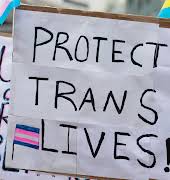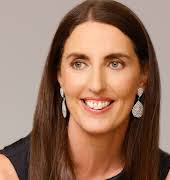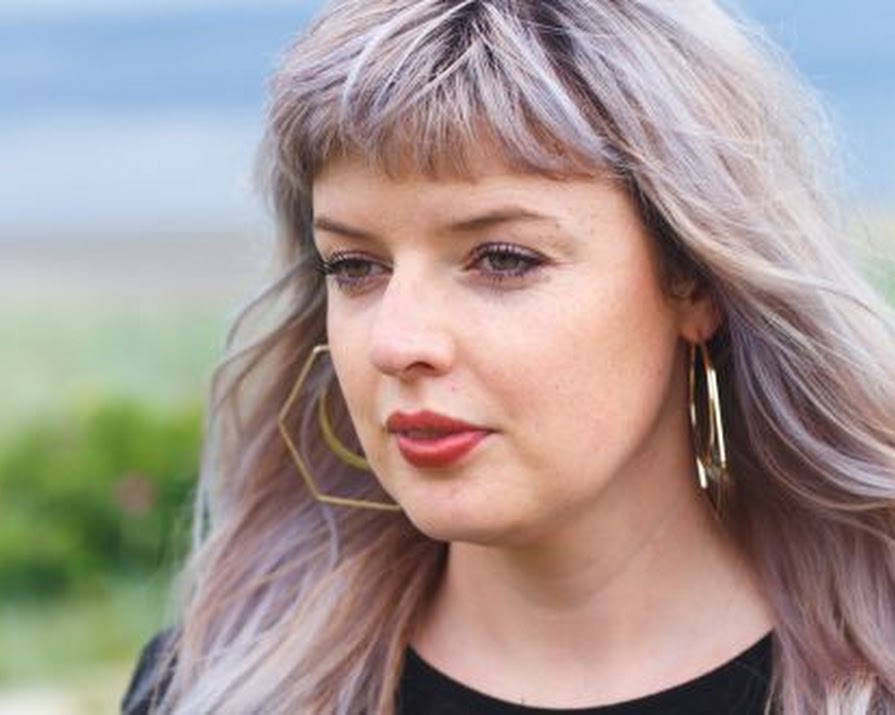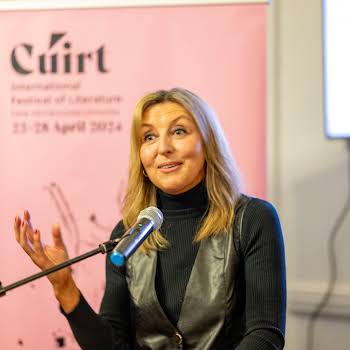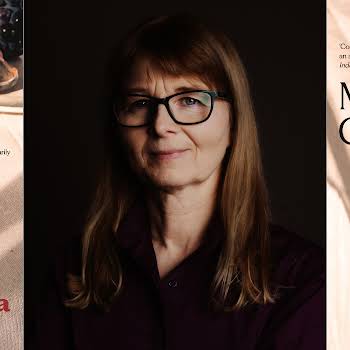
‘When I write about Dublin now, I feel like I’m writing about a city that doesn’t exist’
By Erin Lindsay
12th Jun 2019
12th Jun 2019
Ahead of her appearance at Body & Soul later this month, we talk to Sarah Maria Griffin on luminaries, escapism, what it was like to move from San Francisco back to Dublin and Maeve Binchy
Sarah Maria Griffin has a way with words. As we sit in a bustling Dun Laoghaire café, her way of phrasing her ideas is almost as if she’s speaking in verse — so much so, that listening back to our conversation and my own disjointed babbling makes me a little embarrassed. Griffin’s extensive portfolio, including three books, endless poetry, one of which was the famous We Face This Land, used widely in the Repeal the 8th movement, podcasts and articles, shows her prowess as a writer and speaker, but none so much as listening to her in person.
Fans of Griffin will be able to do just that later this month at Body & Soul, where she will appear as a special guest on a live episode of the podcast Sentimental Garbage. Ahead of the festival, we chat about her latest book, returning to a very different Dublin, and how it feels to be one of Ireland’s young female writers.
Returning to Ireland
Griffin was one of the thousands who emigrated to the US during the recession and set up home in San Francisco. In 2016 she was one of the thousands who returned home. However, the sight of the Emerald Isle on the horizon wasn’t sweet for long. “I had no idea of what I was coming back to. I remember before I moved home, I was standing in the bookshop in San Francisco where I worked, looking on Daft.ie at houses and happily talking about how cheaply and well I was going to live when I got back to Ireland.
“I had no idea.
“Dublin and San Francisco are now the same — the parallels in the rent crisis, the housing crisis, the homelessness. I didn’t expect to come back and see a mirror of the city I had just left.”
I love how diverse Dublin has become, but the way in which it’s being run now is depressing
Griffin has always written about Dublin; hailing from the city, it’s what she knows. Or at least it was. “I don’t know Dublin the way I used to. I don’t know how to write about this Dublin, because I don’t recognise it. I know it’s quite fashionable these days to be like ‘fuck Dublin’ but I’m from here. I want to live here for my whole life, but I know I can’t. There are so many things that are amazing about its growth — I love how diverse it has become and how many possibilities it has opened up — but the way in which it’s being run now is depressing. It’s hard not to mourn the city that you loved.”
“When I write about Dublin now, I feel like I’m writing about a city that doesn’t exist.”
Luminaries of Irish writing
Griffin is part of a special cohort of modern Irish writing; one that has garnered international attention in recent months. The uprising of exceptional young Irish female writers has been recognised by the likes of British Vogue and Harper’s Bazaar, with the likes of Emilie Pine, Sally Rooney and Anna Burns making waves in the Irish literary space so often occupied by men. Why is the attention so suddenly on Irish women writers?
“I think it’s down to us having luminaries, unmistakable geniuses who, when they are buoyed by international success, shine a light on the rest of us. When one does well, everyone looks at our little island for more,” Griffin says.
No matter what Irish women are writing, whether it’s baring nerve endings, critical analysis, or sci-fi, we’re all coming from that legacy
“Although our works are all completely different — and I am so grateful to be sitting on the shelf alongside these women — we have a legacy as Irish women to live up to. We have this way of speaking, sure, that corrupts and morphs the English language to make it sound more interesting, but we are also part of a long line of intentionally-inflicted female pain. No matter what Irish women are writing, whether it’s baring nerve endings, critical analysis, or sci-fi, we’re all coming from that legacy.”
And is the community as tight as they say? “There is such camaraderie and such support that we all show to each other — I would not want to be writing at any other time, she says. “I hope this isn’t a wave — I hope it’s a flood.”
Related: ‘My favourite part? Finally figuring out why the house would go on fire’
Other words for smoke
Griffin’s latest literary offering, the otherworldly Other Words for Smoke, marks a definite move from autobiographical to fiction writing. Was the decision difficult to make? Griffin considers: “I’ve always been mostly into poetry, which turned into essays when they got too long. Growing up with my head in computers, and seeing the explosion of the personal essay online through the likes of Roxanne Gay and Cheryl Strayed, I always had these aspirations of being a non-fiction writer, and my early work was born out of that.
While I still love non-fiction writing and will continue to do it, I think I find it easier to tell the truth in costume. I can talk more earnestly about how I feel if I place it on a vantage point far away. With Other Words for Smoke, I found it easier to talk about all these ideas like pain, obsession, being a teenager, within this stage setting.”
I can talk more earnestly about how I feel if I place it on a vantage point far away
The story of Smoke may be otherworldly, but it’s central ideas are close to home. “It deals with two generations of Irish women in a house in fictionalised Stepaside, two creatures that also live in the house, and the interplay between them all. It’s a little bit about what women will do to each other for freedom, a lot about falling in love and mostly about power.”
Her next book, though, will be a little more lighthearted. “My third novel, which will probably be out next year, will move away from this tortured soul that I’ve been writing about for so long. My first book was about anxiety; Smoke was about anger, and this one is about fun — I’m writing something to make my husband laugh.”
Body & Soul
Adding a literary notch to her festival belt, Griffin will be appearing at Body & Soul this month at a live episode of Sentimental Garbage, the podcast from writer and journalist Caroline O’Donoghue. The premise of the podcast is discussing chick-lit, book titles that would previously been tossed aside as “women’s fiction” (“extreme quote marks around that” points out Griffin) and give them the respect and critique they deserve.
So, what’s the topic of discussion at Body & Soul? Keeping up the theme of Irish luminaries, it’s none other than Circle of Friends by the inimitable Maeve Binchy.
“I can’t believe how different festivals have become. Instead of spending the day shaking off a hangover in a dark tent, we can sit and listen to ideas, and creative conversations, with a few cans to keep us company … or G&T’s, since it is 2019 after all,” says Griffin. “I can’t wait to do a deep dive on someone like Maeve Binchy, especially with someone like Caroline. I’m pumped.”
- Read more: Five new books to look forward to in June
- Read more: It’s time to spare a moment to mourn the books we buy and never read
- Read more: 40 books to read before you’re 40








